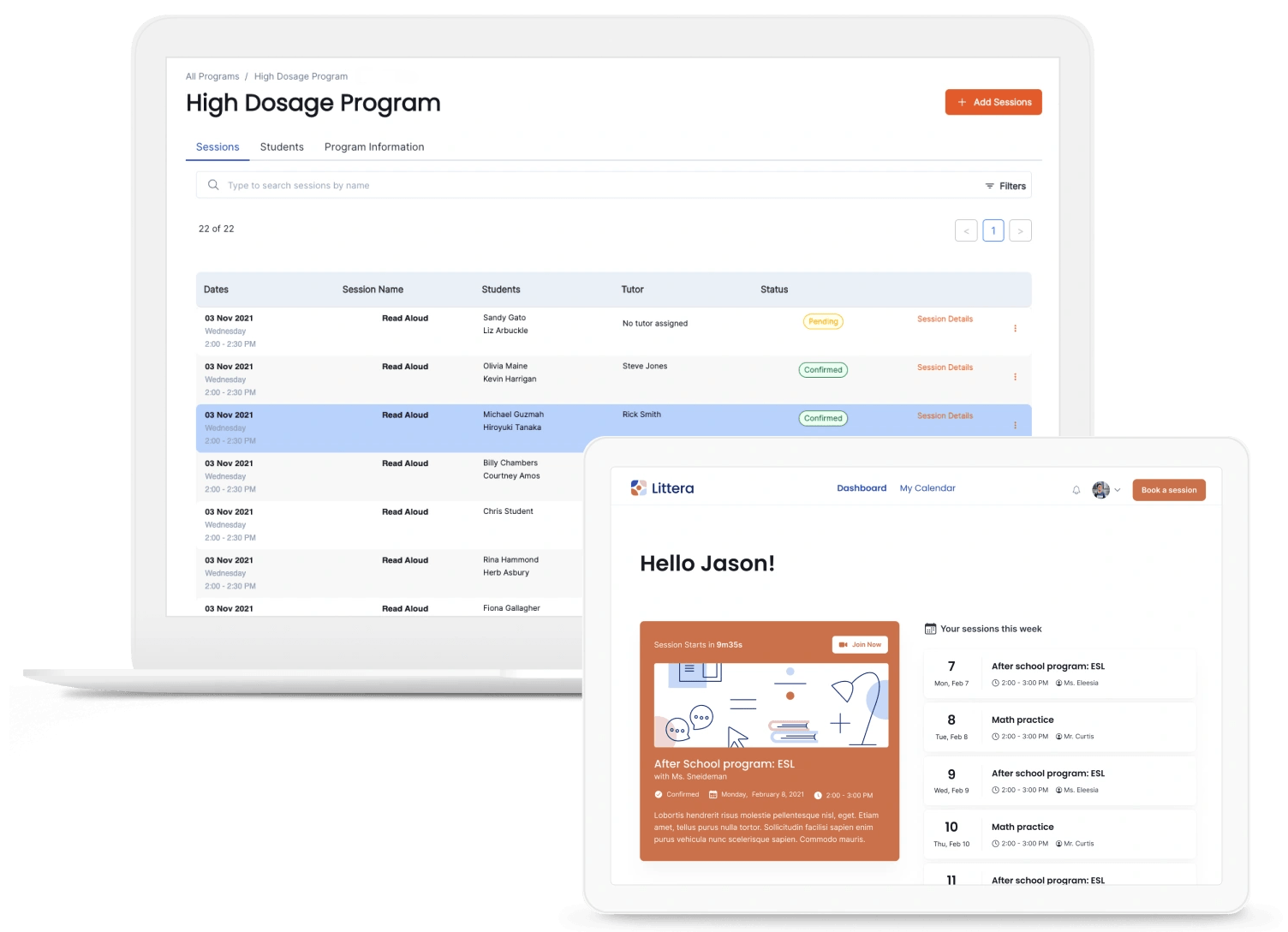The evidence is strongest, with the most research available, for reading-focused tutoring for students in early grades.
Ed Research for Recovery: Accelerating Student Learning With High-Dosage Tutoring
Carly D. Robinson, Matthew A. Kraft, Susanna Loeb - Annenberg Institute at Brown University and Beth E. Schueler - University of Virginia
Instructional pathways based on current reading research
Foundational Reading
Explicit instruction in phonics and phonological awareness, high-frequency words, reading decodable and authentic texts.
10 modules
15-25 sessions per module
Fiction Reading
Moving students up levels of text complexity by strengthening reading comprehension, fluency, stamina, synthesis, and vocabulary.
3 modules
25 sessions per module
Non-Fiction Reading
Focus on knowledge generation, central ideas, supporting ideas with text evidence, synthesizing across texts, and reading critically.
3 modules
15 sessions per module
Start by identifying needs
Formative assessments identify gaps in phonemic awareness, phonics, and comprehension, and placement guides ensure that students receive instruction on the right skills in the right sequence.
Provide engaging texts
The reading material includes a combination of decodable texts matched to phonics lessons and engaging authentic texts to help students build comprehension.
Hire high-quality tutors
School Staff
In many schools, intervention specialists, paraprofessionals, and teachers provide individualized intervention with this curriculum.
Volunteers
The lessons are highly scaffolded so that even those with limited instructional experience can be trained to successfully tutor.
Littera Virtual Tutors
Littera Virtual Tutors are available to support you! Each receives extensive training before they are eligible to deliver any curriculum.
Follow evidence-based practices for scheduling
Each lesson is 30-45 minutes and is designed to be delivered three to five times per week.
During or attached to the school day
Research shows it's best to schedule during the school day (e.g., during an intervention block) or right before or after school.
Outside of school
For some school and family communities, it makes sense for students to meet tutors virtually outside of school hours.

Everything you need in one place
All of the program materials are integrated into the Littera Tutoring Management System, simplifying scheduling, tutor delivery, and tutor training.
Since everything happens inside of the Littera TMS, you get the data and reporting to prove your program is achieving the desired results.
Ready to learn more?
Learn how Littera can help you design and deliver a program that fits your district.
